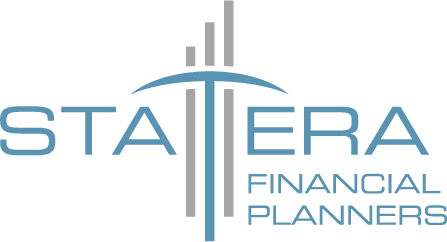

Facebook-f
X-twitter
Jki-instagram-1-light
Linkedin
Mastering Your Monthly Budget: Financial Planning Tips to Increase Your Cash Flow

Written by
staterafp
Published on
January 22, 2025
Share This
Mastering Your Monthly Budget: Financial Planning Tips to Increase Your Cash Flow
Do you ever wonder where your money goes each month? If you find yourself puzzled at the dwindling balance of your bank account, you’re not alone. Managing a monthly budget might seem daunting, but with a little guidance, it can become second nature.
Here at Statera Financial Planners, we’re passionate about helping you gain control of your finances. Our practical tips are designed to help you track your spending and boost your monthly cash flow.
Mastering your monthly budget is all about understanding your income and expenses. By doing this, you can make informed decisions that can dramatically improve your financial well-being. Imagine the peace of mind that comes with knowing exactly how much you can spend, save, and invest each month.
Our goal is to empower you with the knowledge and tools necessary for financial stability and growth. Let’s start this journey towards a clearer and more secure financial future together. Here’s how you can use simple strategies to take charge of your budget and increase your cash flow.
Understanding Your Income and Expenses
Navigating your financial waters starts with a clear map of your income and expenses. We believe that understanding the money coming in and going out each month is the bedrock of effective budget management.
Let’s break it down: Income includes your earnings from work (wages or commissions), any side hustles, and occasional bonuses. It could also be smaller things like birthday money or e-transfers from friends covering costs to something specific. Expenses, on the other hand, cover everything from your monthly rent or mortgage to the coffee you grab on your way to work; things you charge to debit cards, credit cards or spend cash on. Separating these into fixed costs (like rent) and discretionary spending (like dining out) categories helps create a clearer financial picture.
Here’s a practical approach: Using an excel format that can be easily reorganized, list every source of income you have. Then, track every single expense over a month. It might seem tedious at first, but knowing exactly where every dollar is going can unveil surprising insights into your spending habits.
This exercise is crucial because it lays the foundation for the next steps in your budgeting process—identifying potential savings and reallocating funds towards your financial goals. By the end of this assessment, you’ll have a solid baseline to use in crafting a budget that truly reflects and supports your financial ambitions.
Key Strategies to Reduce Monthly Spending
Reducing monthly spending can free up significant amounts of cash, offering more flexibility and security in your financial life. We’ve seen time and again how small adjustments can lead to substantial savings. Here are some effective strategies to curb your spending:
- Cut Back on Non-Essentials: Identify areas where you can reduce frivolous spending. Maybe you buy lunch out every day, or you’re subscribed to several streaming services. See what can be trimmed without sacrificing your happiness.
- Shop Smarter: Use coupons, wait for sales, and compare prices before making purchases. Consider bulk buying for items you use frequently if it offers cost savings in the long run.
- Reduce Utility Bills: Simple changes like turning off lights when not in use, adjusting your thermostat slightly, and using energy-efficient appliances can lower your monthly utility costs.
Incorporating these strategies doesn’t mean living a life of austerity. Instead, it’s about making smarter choices that align with your financial goals. By reassessing your priorities and adjusting your spending accordingly, you can significantly boost your fiscal health and move closer to your financial freedom.
Remember, every dollar you save is a dollar that can be put towards a more meaningful part of your life, whether that be saving for a dream vacation, investing for retirement, or simply building a safety net.
Smart Ways to Increase Your Monthly Income
Enhancing your income is another strategic way to improve your financial health beyond just cutting expenses. We encourage you to explore multiple avenues to bring in additional finances. First, consider turning a hobby into a source of income.
Whether it’s crafting, photography, or writing, many hobbies can be transitioned into small businesses or freelance opportunities. Next, if feasible, you might look at part-time jobs or seasonal positions that can fit around your current obligations.
Another tactic could be to invest in acquiring new skills or certifications that could lead to promotions or better job opportunities. Remember, the more skills you have, the more valuable you are to employers, potentially leading to increased earnings.
Also, considering the digital age, tapping into the gig economy can be a practical option. Platforms that cater to freelance services can offer a flexible way to earn extra money on your schedule. By diversifying your income streams, you ensure additional security and scope for savings and investments.
Tools and Tips for Effective Budget Tracking
Keeping a diligent eye on your budget requires the right tools and a consistent approach. This could include using budget tracking apps that link directly to your bank accounts to monitor spending in real time. These tools categorize your expenses automatically, making it easier to see where your money goes each month. They also alert you when you’re close to exceeding your budget limits, helping keep your finances in check.
Besides digital tools, setting regular check-ins with yourself (or with a partner) to review finances is crucial. We recommend weekly or bi-weekly reviews to adjust as needed, ensuring you stay on track to meet your financial goals.
Effective budget tracking helps you anticipate problems before they arise, offering a chance to adjust your spending habits proactively. Most importantly, stay flexible and adapt your budget as life changes—your financial planning should be a living process that grows with you.
Cash Flow Control: Strategies to Master Your Monthly Budget
Mastering your monthly budget doesn’t have to be a solo journey. Here at Statera Financial Planners, we’re dedicated to guiding you through the complexities of personal finance. By understanding your income and expenses, implementing strategies to reduce spending, finding ways to increase income, and effectively tracking your budget, you’re well on your way to a healthier financial life.
If you’re looking for personalised advice and strategies tailored to your unique financial situation, we’re here to help. Reach out to us today, and let’s work together to achieve your financial aspirations. Take control of your finances and see how small changes can bring big rewards. Your journey towards financial freedom starts here—let us guide you every step of the way with our financial planning services in Edmonton!
As financial planners, we do not provide specific tax and legal advice. You should always consult your accountant and/or lawyer where necessary. Because of the many ways a strategy may be impacted when segmented, we prefer to communicate collectively with your external professionals to ensure that all recommendations and action plans are in the overall best interest of you, with your professionals working with common goals in mind.
You are never obligated to act on our recommendations of products, services, or advice.
Facebook-f
X-twitter
Jki-instagram-1-light
Jki-linkedin-light